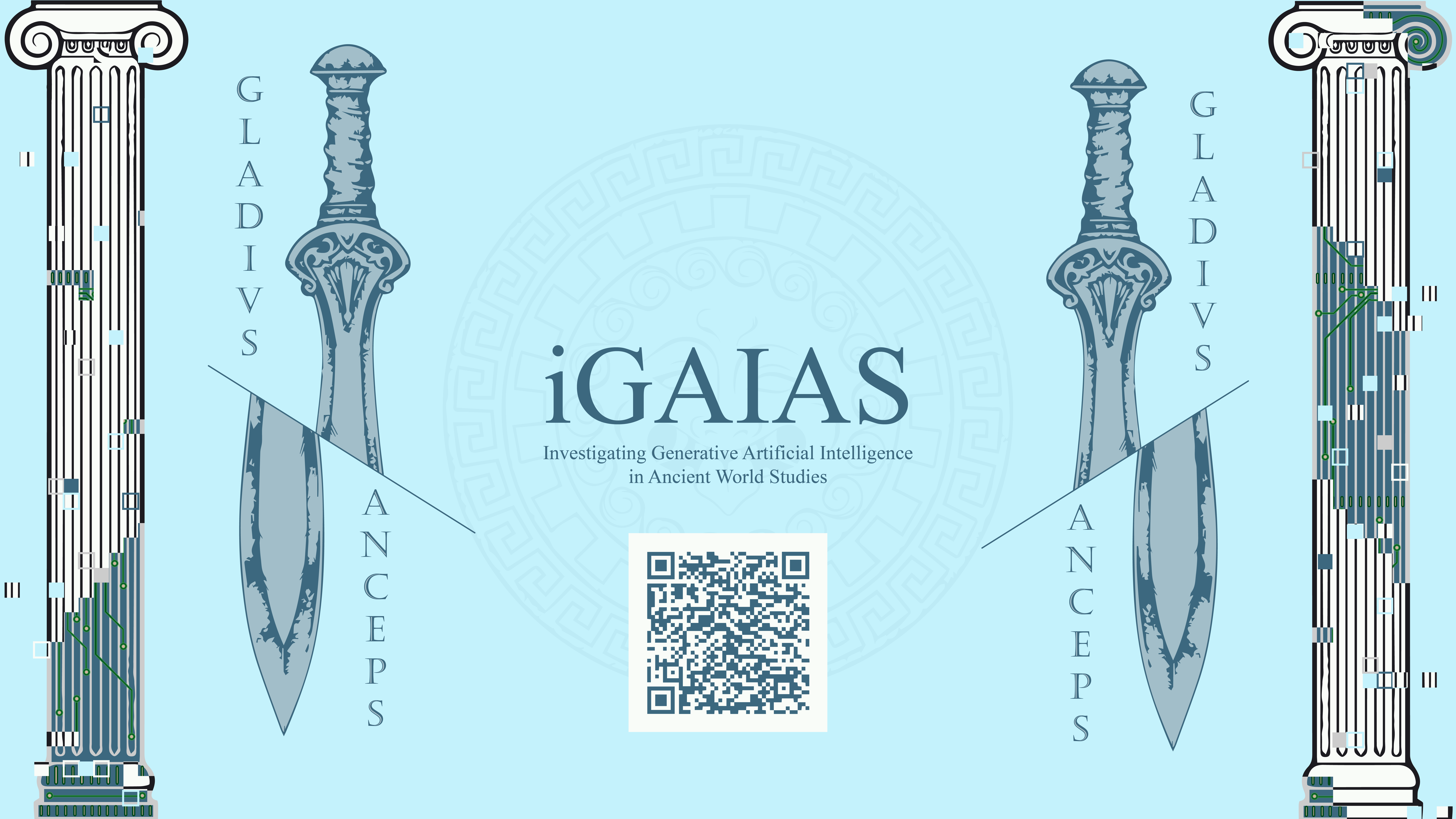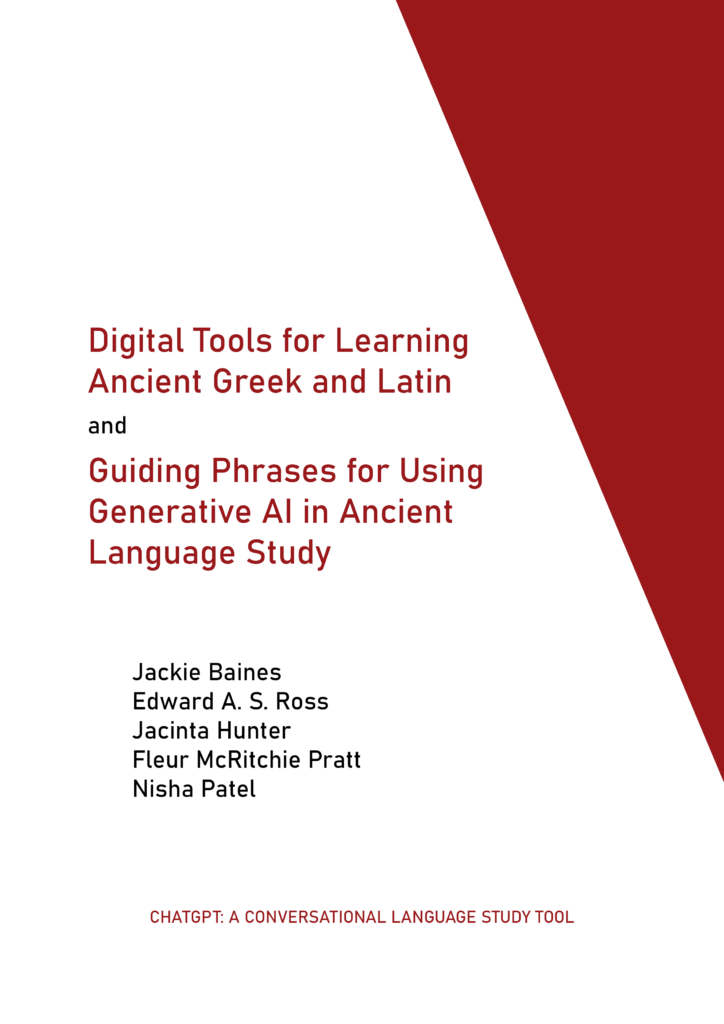by Edward A. S. Ross and Jackie Baines
As generative artificial intelligence (AI) becomes an integral part of society, it is crucial that we keep abreast of these developments and their implications. When it comes to ancient world studies, many people avoid engaging with these tools because they are far outside the usual remit of traditional research, teaching, and learning. In order to bridge this gap, our project, iGAIAS: Investigating Generative Artificial Intelligence in Ancient World Studies, breaks down the ethical considerations and current developments of generative AI for humanities audiences (Figure 1).

This project started as a short conversation in the hallway. In January 2023, Jackie and I were discussing the booming popularity of ChatGPT and wondered if it was something that could handle ancient languages. After a couple of tests, now published in the Journal of Classics Teaching, we found that conversational AI tools had some capability but still had a long way to go before they could be effective ancient language study tools. However, since generative AI was developing so rapidly, we aimed to follow its development and create accessible tutorials for our students. We received a Teaching and Learning Enhancement Project (TLEP) grant for the 2023-2024 academic year to support this research.
We started our presentations by engaging in productive conversation with teaching staff in the Department of Classics at the University of Reading to develop initial generative AI policy and discern how these tools could be used to productively support teaching and learning in the department. Using this data, we led generative AI ethics tutorials in our ancient language classes (Ancient Greek, Latin, and Egyptian Hieroglyphics) at all levels over the Autumn 2023 term. In each session, we gathered survey data from our students on their opinions and usage of generative AI prior to their language studies in the 2023-2024 academic year. We also had the opportunity to present these themes to modern languages students and gathered comparative survey data. The results of these initial survey sessions have now been published in the Journal of Classics Teaching. The ethics portion of these presentations has been recorded as a video tutorial available on a playlist on the Department of Classics’ YouTube Channel.
With our undergraduate research assistants Jacinta Hunter, Fleur McRitchie Pratt, and Nisha Patel, we created a booklet outlining a wide variety of digital learning tools for ancient languages that included both traditional tools and generative AI (Figure 2). This included tested guiding phrases, prompts which can be copy-pasted as the first message in a generative AI chat box to guide a user’s experience, and some prompt engineering tips and tricks.

At the end of the 2023-2024 academic year, we surveyed our same ancient language students again to see how they felt generative AI had impacted their studies. In addition, we queried if and how often they used generative AI in the past year. The initial analysis of the spring data was first presented at the Digital Humanities and Artificial Intelligence Conference at the University of Reading on June 17, 2024. We intend to publish a complete analysis in Digital Humanities Quarterly shortly.
While keeping track of the advancements of generative AI, we found the developments in generative image AI to be particularly problematic for ancient world studies. This was primarily because many of the figures and objects presented in these outputs appeared to be biased by modern media. We received Undergraduate Research Opportunities Programme (UROP) funding and a Research Collaboration and Impact Fund (RCIF) grant to investigate this further. With our undergraduate research assistants Shona Carter-Griffiths, Hannah Gage, and Jacinta Hunter, we are developing a temporary exhibition at the Ure Museum of Greek Archaeology on identifying biases about the ancient world in generative image AI. This exhibit, opening September 23, 2024, will present image comparisons between generative AI outputs, modern media representations, and ancient art.
As new developments in generative AI continue to arise, we aim to keep up with these tools and make them accessible for humanities scholars. By increasing generative AI literacy across ancient world studies, these tools will no longer be an unrecognizable monster but rather a surmountable challenge.
